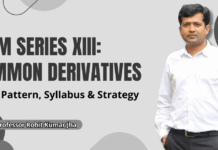An exciting and sometimes very rewarding opportunity at diversifying one’s investment portfolios attracts investors to commodities trading. Excellent for gaining exposure to asset classes, whether one is new to investing or looking to broaden, at its core, commodities trading is buying and selling raw materials. Such physical assets are the backbone of global industries. The level of prices determines the supply, demand, and geopolitical events of these assets. If you are contemplating the jump to commodities trading, here is everything you should know .
What Are Commodities?
Commodities refer to basic goods that can be bought and sold in commerce as similar goods with other goods of the same kind. They are basically categorized under two main heads: hard commodities and soft commodities. Hard commodities are naturally occurring commodities, such as gold, oil, or metals used, like copper, to aluminum. Soft commodities are usually agricultural products, including wheat, coffee, sugar, and livestock. Both kinds of commodities are important elements for trading around the world and industries that have price fluctuations affected by the amalgamation of circumstances, from weather conditions to disruptions caused in the global supply chain.
What is Commodities Trading
While in commodities trading, an investor buys and sells contracts for the exchange of commodities rather than buying and selling the commodity itself. It is a sort of contract or agreement related to the buying and selling of a specified quantity of a commodity at a specified price on some date in the future. This helps traders speculate over price fluctuations without having to actually own the underlying commodity. For example, the day you suspect oil price may rise, you will buy futures contracts at prevailing prices and sell them later at a high margin.
There are numerous ways of trading commodities. There is always a futures contract, then options, or ETFs. Futures contracts are the most popular since they agree upon delivering or receiving commodities on a certain future date. Options: Options enable a trader to buy or sell a commodity at a predetermined price and have the choice of either incorporating the obligation to transact it before it expires or not to bind themself. ETFs: A commodity ETF gives one exposure to a commodity without having to invest directly in futures, making it an avenue for beginners into investing.
Factors Influencing Prices of Commodities
Commodities are prone to many factors, such as supplies and demand processes, political and other geopolitical activities, and even the broad economic conditions. For example, crude oil prices internationally are greatly influenced by the production levels of major oil-producing countries like the U.S., Russia, and all members of OPEC. Conflicts or even natural disasters may raise the prices due to supply interruption. Prices of agricultural products are also very sensitive to any change in the climatic situation, such as droughts, floods, or other climatic disturbances, which may affect crop yields severely and may cause price shocks.
Why Commodity Trade?
The benefits of commodities trading are that they offer many advantages to investors. First, commodities normally behave more diversely than the traditional stocks and bonds in a portfolio. When the stock markets face serious problems, commodities like gold or oil will increase, so losses from other asset classes are reduced. The commodities become one of the best managed risk assets when there is economic uncertainty.
Commodities Trading Risks
Although commodities trading may be profitable, no risk-free gains exist. Prices may swing sharply due to political shock events, weather disaster-related events, or dramatic changes in the world’s economic conditions. In fact, prices in futures markets are somewhat volatile; a trader can incur very large losses when on the wrong side of a price movement.
In sum, commodities trading offers an attractive avenue through which investors can diversify portfolios and benefit from dynamics in global markets. Investing in a well-understood key determinant of commodity price movements, coupled with the appropriate instruments through which to trade, can unlock the value of this unique asset class. However, just like any kind of trading, it demands a robust strategy, requisite market awareness, and willing acceptance of the risks involved.





































